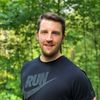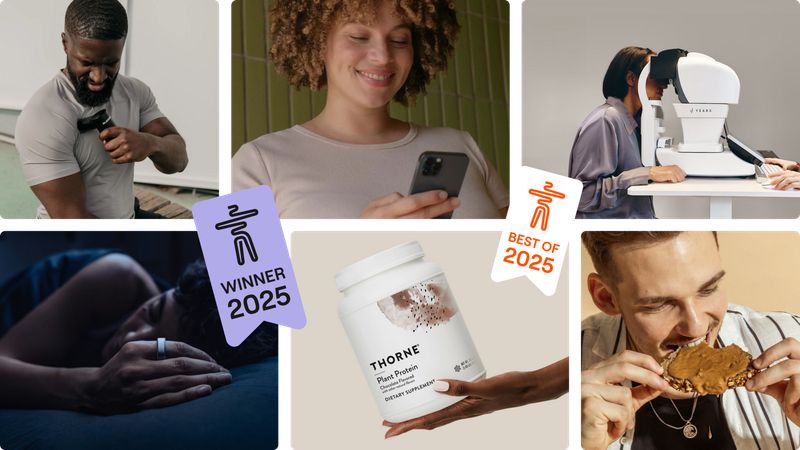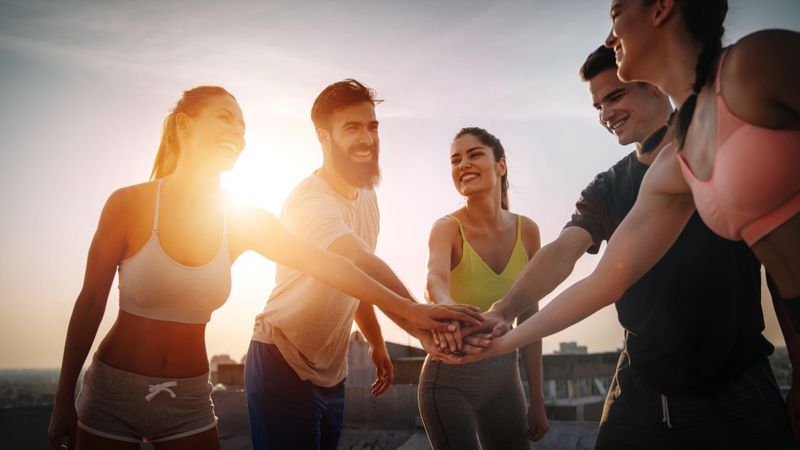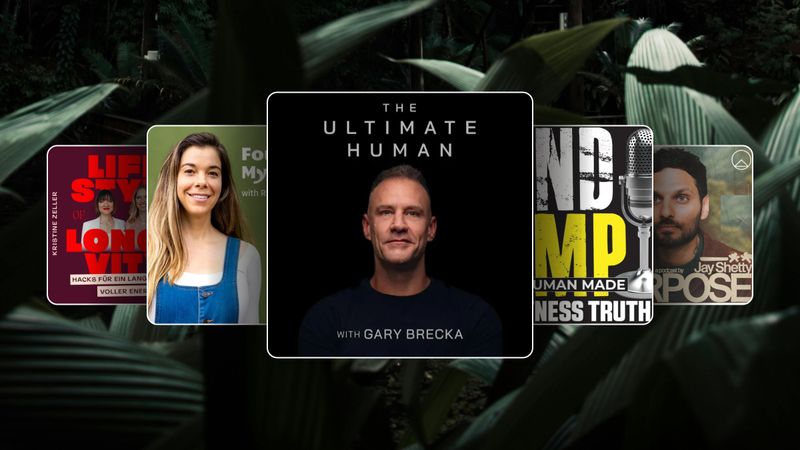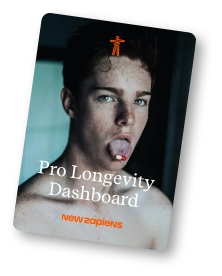Top health and longevity conferences in 2025 & 2026

Feeling overwhelmed by the sheer number of health and longevity events popping up these days? We get it. It’s enough to make even the most dedicated biohacker’s head spin. To help you navigate this fast-growing landscape, we’ve put together a curated guide to the must-attend gatherings in 2025 and a first look at the highlights already lined up for 2026. Think of it as your personal compass for the year ahead in health and longevity. Grab your calendar, your preferred note-taking device, and let’s explore the top events designed to help you live better, longer, and smarter.
Find your next learning opportunity, bookmark the relevant links, and don’t forget to bring your intellectual curiosity—2025 and 2026 are shaping up to be exciting years for the science of longevity (with a healthy dose of evidence-based thinking, naturally).
January 2025
- Don't Die Summit • Saturday 18th • US (Los Angeles)
February 2025
- Don't Die Summit • Saturday 15th • US (New York)
- Founders Longevity Forum • Thursday 27th - Friday 28th • SG (Singapore)
March 2025
- The Healing House • Saturday 1st • DE (Hamburg)
- Turn Around Aging Conference • Friday 14th • DE (Munich)
- Don't Die Summit • Saturday 22nd • US (Miami)
- Biohackers World • Saturday 29th - Sunday 30th • US (Los Angeles)
- Milan longevity summit 2025 • Sunday 30th • US (Miami)
April 2025
- Vitalist Bay • Friday 4th - Thursday 29th May • US (Berkeley, California)
- FIBO • Thursday 10th - Sunday 13th • DE (Cologne)
- Health Optimisation Summit • Saturday 12th - Sunday 13th • US (Austin)
- On Aging • Monday 21st - Thursday 24th • US (Orlando)
- Biohacking Days • Friday 25th - Sunday 27th • DE (Stuttgart)
- D.C. Summit • Monday 28th - Wednesday 30th • US (Washington)
May 2025
- Conscious Health Summit • Friday 2nd - Saturday 3rd • PT (Lisboa)
- Longevity Med Summit • Tuesday 6th - Thursday 8th • PT (Lisboa)
- Melbourne Longevity Panel • Wednesday 7th • AU (Melbourne)
- Life Summit • Tuesday 27th - Wednesday 28th • DE (Berlin)
- Dave Asprey Biohacking Conference • Wednesday 28th - Friday 30th • US (Austin)
June 2025
- HOLOLIFE Summit (former Biohacking Summit) • Saturday 14th - Sunday 15th • EE (Tallinn)
- HLTH • Monday 16th - Thursday 19th • NL (Amsterdam)
- Longevity Docs • Tuesday 24th - Thursday 26 • FR (Cannes)
- Longevity Nation • Wednesday 25th - Thursday 26th • IL (Tel Aviv)
- Biohack Miami • Sunday 29th • US (Miami)
July 2025
- Longevity Summit Dublin • Wednesday 2nd - Friday 4th • IE (Dublin)
- Flowfest • Thursday 3rd - Sunday 6th • DE (Munich)
- RAADfest • Thursday 10th - Sunday 13th • US (Las Vegas)
August 2025
- POLLY • Monday 22nd - Wednesday 24th • DE (Frankfurt/Main)
- 2060 Longevity Forum • Saturday 30th - Sunday 31st • FR (Aix-en-Provence)
September 2025
- Biohacking Festival • Saturday 6th - Sunday 7th • DE (Heidelberg)
- Clinical Longevity Summit • Friday 12th - Saturday 13th • US (West Palm Beach, Florida)
- Biohacking Congress 2025 • Friday 12th - Sunday 14th • DE (Bad Dürrheim)
- Health Optimisation Summit • Saturday 13th - Sunday 14th • UK (London)
- 3rd International Baltic Conference on Healthy Longevity • Tuesday 16th - Wednesday 17th • LV (Riga)
- 10th Annual ICSA Conference & 2nd Phaedon SenoTherapeutics Summit • Tuesday 16th - Friday 19th • IT (Rome)
- British Society of Lifestyle Medicine • Thursday 18th - Saturday 20th • UK (Brighton)
- THE FIX • Thursday 18th • UK (Oxfordshire)
- St. Moritz Longevity Forum • Thursday 18th - Sunday 21st • CH (St. Moritz)
- Timepie Longevity Forum • Saturday 20th - Sunday 21st • CN (Shanghai, Pudong)
- Longevity Investors Conference • Monday 22nd - Thursday 25th • CH (Gstaad, Le Grand Bellevue)
- LBF Cohort 7 • Monday 22nd - Monday 29th • ES (Valencia)
- The Vibrant Longevity Summit • Wednesday 24th - Saturday 27th • US (Austin, Texas)
- Healthy Longevity Global Innovator Summit • Monday 29th - Tuesday 30th • Online
October 2025
- TransVision Madrid • Wednesday 1st - Thursday 2nd • ES (Madrid)
- European Healthy Aging Summit • Thursday 2nd • BE (Brussels)
- HFA European Congress • Thursday 2nd - Saturday 4th • NL (Amsterdam)
- Beyond Active Americas • Thursday 2nd - Friday 3rd • US (Dallas, Texas)
- Copenhagen Health Week • Saturday 4th - Sunday 5th • DK (Copenhagen)
- The Healthspan Summit • Friday 3rd - Sunday 5th • US (Los Angeles)
- Biohacker Summit Hololife • Friday 10th - Saturday 11th • JP (Tokyo)
- Ageless Evolution Longevity Summit 2025 • Friday 10th • US (Mountain View, California)
- The Africa Wellness Congress • Monday 13th - Tuesday 14th • MA (Marrakech, Es Saadi Resort)
- The Fitness Technology Summit • Monday 13th - Tuesday 14th • US (Chicago)
- Agetech X • Tuesday 14th • DE (Berlin)
- Health Optimization Medicine and Practice Symposium • Friday 17th - Saturday 18th • US (Boulder, Colorado)
- Her Longevity • Saturday 18th • US (New York City)
- HLTH • Sunday 19th - Wednesday 22nd • US (Las Vegas, Nevada)
- Biomarkers of Aging Conference • Monday 20th - Tuesday 21st • US (Boston, Harvard Medical School)
- Zenos Health Summit • Thursday 23rd - Saturday 25th • SAU (Riyadh)
- European Lifestyle Medicine Congress • Thursday 23rd - Saturday 25th • BE (Brussels)
- Shape Expo • Friday 24th - Sunday 26th • DE (Berlin)
- Mastering the Aging Clock • Tuesday 28th - Thursday 30th • CH (Geneva)
- Longevity Nation • Tuesday 28th - Wednesday 29th • IL (Tel Aviv)
November 2025
- NHS Providers Annual Conference • Monday 10th - Tuesday 11th • UK (London)
- MedTech World Malta • Wednesday 12th - Friday 14th • MT (Malta)
- Age Management Medicine Conference • Wednesday 12th - Sunday 16th • US (Salt Lake City, Utah)
- Longevity NYC • Thursday 13th • US (New York)
- Longevity Summit Mauritius • Thursday 13th - Saturday 15th • MU (Trianon Convention Centre)
- EUDĒMONIA SUMMIT • Thursday 13th - Sunday 16th • US (West Palm Beach, Florida)
- Artificial Intelligence in Medicine: President’s Conference 2025 • Friday 14th • UK (Glasgow & Online)
- Hack your Health • Friday 14th - Sunday 16th • US (Tampa, Florida)
- Lifestyle Medicine Conference • Sunday 16th - Wednesday 19th • US (Grapevine, Texas)
- Medica • Monday 17th - Thursday 20th • DE (Düsseldorf)
- EHR Wales by Convenzis Group • Tuesday 18th • UK (Cardiff)
- Havas Lynx x WellFounded Leaders in Health Summit • Tuesday 18th • UK (London)
- Where does Health start and stop by One HealthTech at Hale House • Tuesday 18th • UK (London)
- Forbes Middle East Healthcare Summit • Tuesday 18th - Wednesday 19th • AE (Abu Dhabi)
- Global Wellness Summit • Tuesday 18th - Friday 21st • AE (Abu Dhabi, UAE)
- Slush • Wednesday 19th - Thursday 20th • FI (Helsinki)
- Aesthetic & Anti-Aging Medicine Asia • Thursday 20th - Saturday 22nd • TH (Bangkok)
- National MedTech Foundation Annual Conference • Saturday 22nd • UK (Location TBD)
- Digital Health World Congress • Monday 24th - Tuesday 25th • UK (London)
- Hale House x Assuric - Regulating AI in Healthcare • Tuesday 25th • UK (London, Harley Street Health District)
December 2025
- Radiological Society of North America (RSNA) Annual Meeting • Monday 1st - Thursday 4th • US (Chicago, IL)
- HealthTech Europe HXPO • Wednesday 3rd • IT (Milan)
- Health Tech Forward • Wednesday 3rd - Thursday 4th • ES (Barcelona)
- Roundtable of Longevity Clinics • Saturday 6th - Monday 8th • US (Buck Institute, Novato, California)
- GIANT Health Event • Monday 8th - Tuesday 9th • UK (London)
- World Summit AI • Tuesday 9th - Wednesday 10th • QA (Doha)
- The Longevity Summit • Tuesday 9th - Wednesday 10th • US (Buck Institute, Novato, California)
- A4M Annual World Congress • Friday 12th - Sunday 14th • US (Las Vegas, Nevada)
January 2026
- AgeTech After Dark • Wednesday 7th • US (Las Vegas, NV)
- The Longevity Expo • Saturday 10th - Sunday 11th • US (West Palm Beach, Florida)
- Immunometabolism Across Scales • Sunday 11th - Wednesday 14th • CA (Vancouver, BC)
- Silicon Valley Applied Longevity Translation Symposium • Thursday 15th • US (Stanford, CA)
- Longevity Investors Lunch • Monday 19th - Friday 23rd • CH (Davos)
February 2026
- EVOLVE Nextgen • Wednesday 4th - Friday 6th • Egypt (Cairo)
- Longevity Med Summit • Wednesday 11th - Thursday 12th • UAE (Dubai)
- Longevity World Forum • Wednesday 18th - Friday 20th • ES (Madrid)
- Connected: Health & Fitness Summit• Wednesday 18th - Friday 20th • US (Los Angeles)
- Integrative Healthcare Symposium • Thursday 19th - Saturday 21st • US (New York)
- Healthy Longevity Intensive Course & Conference • Monday 23rd - Friday 27th • SG (Singapore)
- Unlock Healthy Longevity Conference • Thursday 26th - Friday 27th • SG (Singapore)
- Calm • Friday 27th - Saturday 28th • US (Ft. Lauderdale, Florida)
March 2026
- Arnold Sports Festival • Thursday 5th - Sunday 8th • US (Columbus, OH)
- HFA Show • Monday 16th - Wednesday 18th • US (San Diego, CA)
- International Conference on the Future of Preventive Medicine and Public Health • Monday 23rd - Tuesday 24th • IT (Rome)
- Global Longevity Federation • Monday 23rd - Tuesday 24th • IT (Rome)
April 2026
- Targeting Longevity • Saturday 4th - Thursday 9th • DE (Berlin)
- Aging and Longevity Conference • Thursday 9th - Friday 10th • IT (Rome)
- Biohacking Days • Friday 10th - Sunday 12th • DE (Stuttgart)
- A4M Spring Congress • Friday 10th - Sunday 12th • US (West Palm Beach, FL)
- World Ageing Festival • Tuesday 14th - Wednesday 15th • SG (Singapore)
- Age Management Medicine Group Conference • Wednesday 15th - Sunday 19th • US (Miami, FL)
- FIBO • Thursday 16th - Sunday 19th • DE (Cologne)
- Aging and Gerontology Conference • Monday 20th - Tuesday 21st • UAE (Dubai)
- Longevity Global Wellness Retreat • Monday 20th - Friday 24th • CR (Costa Rica)
- AMSSM Annual Meeting • Friday 24th - Wednesday 29th • US (Seattle, WA)
May 2026
- SynBioBeta • Monday 4th - Thursday 7th • US (San Jose, CA)
- Global Longevity Med Summit • Tuesday 5th - Thursday 7th • PT (Lisbon)
- Preventive Medicine • Thursday 14th - Sunday 17th • US (Baltimore, MD)
- Milan Longevity Summit • Wednesday 20th - Saturday 23rd • IT (Milan)
- ACSM Annual Meeting • Tuesday 26th - Friday 29th • US (Salt Lake City, UT)
- BEYOND Conference (by Dave Asprey) • Wednesday 27th - Friday 29th • US (Austin, TX)
- AIC • Wednesday 27th - Saturday 30th • US (San Diego, CA)
June 2026
- International Biochemistry of Exercise Conference • Monday 1st - Friday 5th • US (Roanoke, VA)
- Systems Aging Gordon Research Conference (GRC) • Sunday 14th - Friday 19th • US (Newry, ME)
- Gordon Research Conference on Biology of Aging • Sunday 14th - Friday 19th • CH (Les Diablerets)
- 8th World Aging and Rejuvenation Conference (ARC-2026) • Thursday 18th - Friday 19th • CZ (Prague)
- Unite Scientific Aging Conference • Thursday 18th - Friday 19th • BE (Brussels)
- Longevitydocs Summit • Wednesday 24th - Friday 26th • FR (Cannes)
- Longevity Summit • Wednesday 24th - Friday 26th • IE (Dublin)
July 2026
- IAGG World Congress of Gerontology and Geriatrics • Sunday 5th - Wednesday 8th • NL (Amsterdam)
August 2026
- Human Augmentation Summit • Sunday 23rd • US (Cambridge, MA)
September 2026
- Oklahoma Geroscience Symposium • Tuesday 1st • US (Oklahoma City, OK)
- Aging Research and Drug Discovery Meeting • Tuesday 1st • DK (Copenhagen)
October 2026
- Gerontological Society of America - Annual Scientific Meeting • Sunday 11th - Wednesday 14th • US (Denver, CO)
- International Symposium on Aging • Monday 12th - Tuesday 13th • SG (Singapore)
- RAADfest • Wednesday 15th - Friday 30th • US (Washington, DC)
December 2026
- Fiftiers Expo • Tuesday 1st - Monday 7th • US (Miami, FL)
This health and longevity conference calendar is a living document and is updated frequently. If you have a favorite longevity event or summit that's not listed, feel free to contact us via [email protected] and we'll be happy to add it to the list!
To a healthy, knowledgeable, and well-connected 2025 and 2026!
Author: Dennis Esser
Bioharmony 💚📈 https://www.bioharmony.de/
